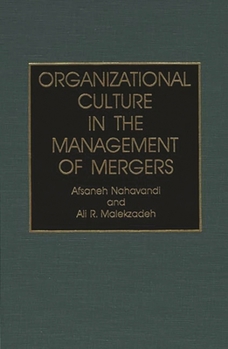Organizational Culture in the Management of Mergers (Third)
The purpose of this interdisciplinary book on the implementation of mergers is to point to the importance of organizational culture and people in the successful management of mergers. The authors provide a framework for analyzing and managing the process of merging cultures, people, and strategies. The framework is based on the concept of acculturation, which has been used extensively in anthropology as a basis for understanding and addressing cultural clashes. The authors demonstrate that similarity between two cultures is neither necessary nor always helpful in easing the tensions between merging partners. Rather, they propose that organizations need to actively negotiate the terms of cultural combination. Such negotiations have to take into account the culture, strategy, leadership, and structure of both firms.
The first part of the book lays the foundation for understanding mergers from a strategic and cultural point of view by defining organizational culture, presenting the strategic options in mergers, and by describing the challenges presented by the merger of two structures. The second part of the book focuses on the process of acculturation and the special role of leadership in the formulation and implementation of mergers. The third part of the book presents four case studies and analyses representing the four distinct ways in which two organizations can acculturate to each other. Culture, strategy, structure, and leadership are interwoven in each of the cases. The book ends with a look at the future of mergers in light of the demographic and economic predictions for the next century. This book will help managers and students of mergers better understand and manage mergers.




